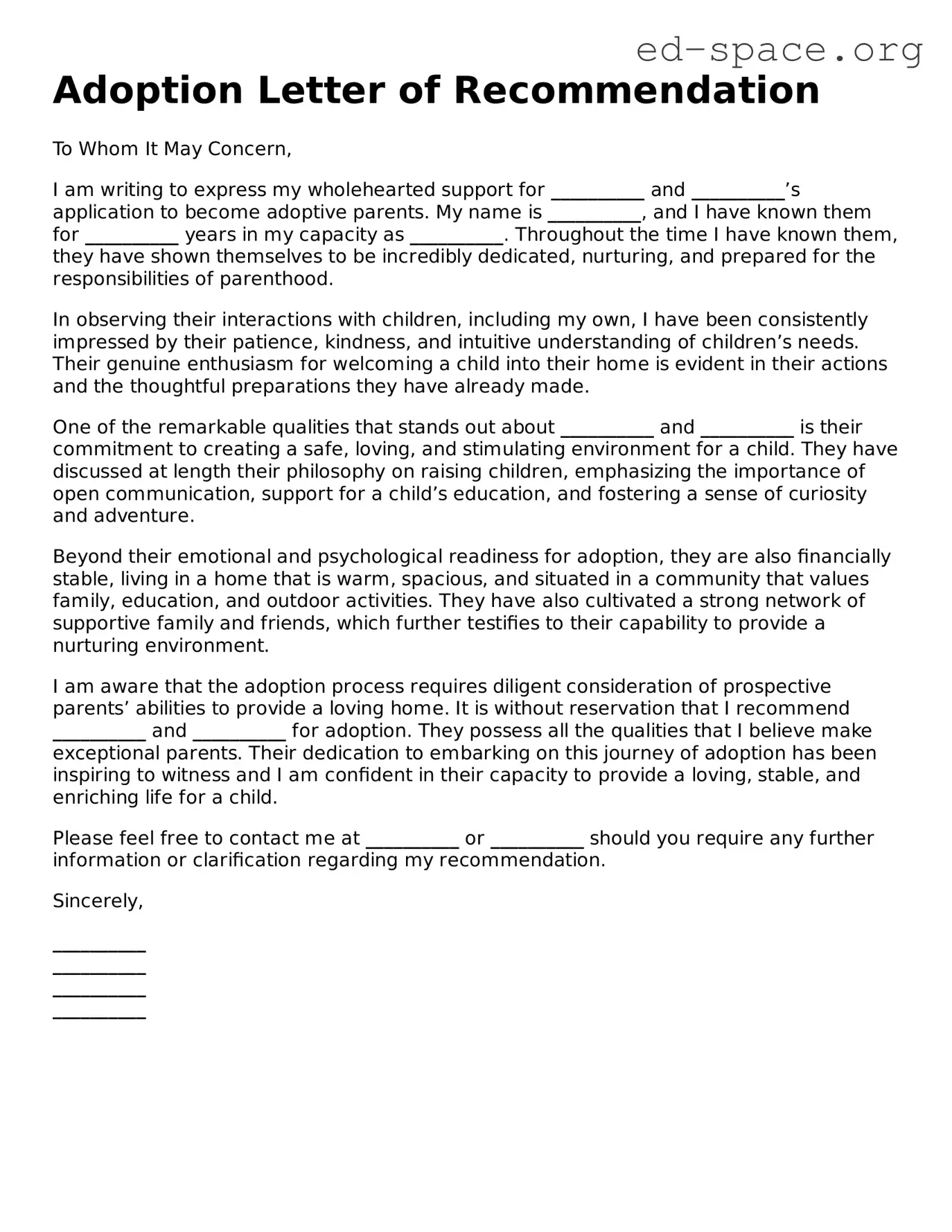Adoption Letter of Recommendation
To Whom It May Concern,
I am writing to express my wholehearted support for __________ and __________’s application to become adoptive parents. My name is __________, and I have known them for __________ years in my capacity as __________. Throughout the time I have known them, they have shown themselves to be incredibly dedicated, nurturing, and prepared for the responsibilities of parenthood.
In observing their interactions with children, including my own, I have been consistently impressed by their patience, kindness, and intuitive understanding of children’s needs. Their genuine enthusiasm for welcoming a child into their home is evident in their actions and the thoughtful preparations they have already made.
One of the remarkable qualities that stands out about __________ and __________ is their commitment to creating a safe, loving, and stimulating environment for a child. They have discussed at length their philosophy on raising children, emphasizing the importance of open communication, support for a child’s education, and fostering a sense of curiosity and adventure.
Beyond their emotional and psychological readiness for adoption, they are also financially stable, living in a home that is warm, spacious, and situated in a community that values family, education, and outdoor activities. They have also cultivated a strong network of supportive family and friends, which further testifies to their capability to provide a nurturing environment.
I am aware that the adoption process requires diligent consideration of prospective parents’ abilities to provide a loving home. It is without reservation that I recommend __________ and __________ for adoption. They possess all the qualities that I believe make exceptional parents. Their dedication to embarking on this journey of adoption has been inspiring to witness and I am confident in their capacity to provide a loving, stable, and enriching life for a child.
Please feel free to contact me at __________ or __________ should you require any further information or clarification regarding my recommendation.
Sincerely,
__________
__________
__________
__________
